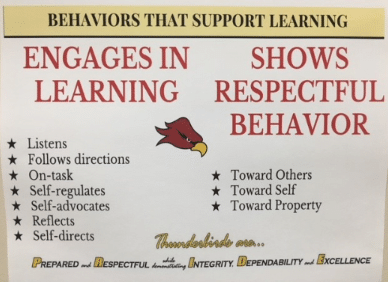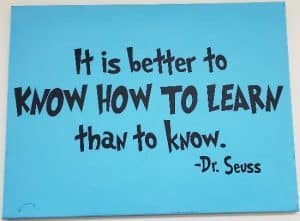Eastern Carver’s Framework for Lifelong Learning Skills
CompetencyWorks Blog
This is the sixth and final post in a series about the Eastern Carver County Public Schools in Minnesota. Links to the other posts are provided at the end of this article.
 Essential learning outcomes in competency-based education include not only academic knowledge but also important skills and dispositions. Many schools, districts, and states have done outstanding work on developing frameworks for these dispositions and implementing them with students. For districts looking to develop or improve their work in this area, it’s helpful to see a variety of examples, such as recent ones on CompetencyWorks from New Hampshire and South Dakota.
Essential learning outcomes in competency-based education include not only academic knowledge but also important skills and dispositions. Many schools, districts, and states have done outstanding work on developing frameworks for these dispositions and implementing them with students. For districts looking to develop or improve their work in this area, it’s helpful to see a variety of examples, such as recent ones on CompetencyWorks from New Hampshire and South Dakota.
Eastern Carver’s framework is called the Behaviors that Support Learning. They have developed a helpful handout that includes the six behaviors, descriptions of each (with some differences for elementary versus secondary levels), and two brief paragraphs explaining it all. One of the many strengths of Eastern Carver’s framework is that all of this information can fit on one side of one page in a non-tiny font, which is so helpful for communication with students and parents.
The six Behaviors that Support Learning are:
- Strives for personal best
- Shows respectful behavior
- Interacts collaboratively with peers
- Engages in learning
- Exhibits responsibility
- Demonstrates accountability
Descriptors are provided for each of the six behaviors. For example, “interacts collaboratively with peers” includes the following for elementary students:
- Contributes ideas,
- Asks for and respects others’ opinions, and
- Flexible, willing to adjust to others’ ideas.
Additional expectations for secondary students include:
- Challenges the group to do their best, and
- Helps group to achieve shared learning goals.

Teachers at Pioneer Ridge Middle School said that they often reference the Behaviors that Support Learning with students, asking “What does it look like? Sound like? Feel like? We are constantly reinforcing, modeling, redirecting, modeling again.” During the daily morning meeting, specific student behaviors are held up as positive examples. During student-led parent conferences, students reflect on how they’re doing in relation to the behaviors. Students at Chaska Middle School East have taught and reinforced the behaviors by using them as themes for lessons during advisory.
Teachers explained that fine-tuning the Behaviors that Support Learning is a work in progress. Even with just six behaviors in the framework, they can be difficult for students to understand, track, and distinguish. In part this is because there are related and overlapping concepts and acronyms. The district’s Positive Behavior Intervention System promotes P.R.I.D.E.—preparedness, respect, integrity, dependability, and excellence. Moreover, the P.R.I.D.E. behaviors are described as dispositions that include motivation, mindset, grit/perseverance, and work ethic. Clearly the lifelong learning skills we want students to develop are difficult to distill into a few key concepts.
The Behaviors that Support Learning are assessed in different ways in the district’s schools. At Pioneer Ridge, students reflect on their own behaviors in advisory at the end of every week, and the reflections are shared with parents at the end of month. At Chaska Middle School East, teachers report on each behavior as Approaching (rarely – less than 50% of the time), Basic (sometimes – 50% to 85%), Meeting (almost always – over 85%), and Extending (learner is leading others). Reporting separately on student behaviors also helps teachers, students, and parents ensure that good behavior isn’t giving an inflated picture of students’ academic progress.
Other Posts in This Series
- District-wide Transformation to Personalized Learning in Eastern Carver County, Minnesota
- Personalizing Learning in an Alternative Arts High School
- It Takes a Village to Personalize Learning to Every Student
- Flexible Scheduling, Supports, and Monitoring in a Competency-Based Middle School
- Strategies for Building Student Ownership of Their Learning
Learn More
- Habits of Mind and Learning New Ways of Learning at Journey Elementary
- Promoting Lifelong Learning Skills in the Classroom: New Hampshire’s Work Study Practices
- Mixed Signals from Report Cards: Learning Heroes Report Highlights Why Competency-Based Grading Matters
Eliot Levine is the Aurora Institute’s Research Director and leads CompetencyWorks.